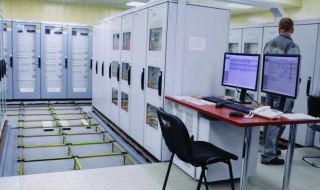The new normal?

Mary Lou Dunzik-Gougar
Happy New Year! I sincerely hope that each of you found time to refresh and rejuvenate over the holidays, or at least have fun. Many indicators suggest that 2021 will be a better year than 2020, including a growing understanding of COVID-19 and its impacts and the availability of a vaccine. So many have suffered from job loss or even loss of businesses in 2020. Even for those of us fortunate enough to be healthy, gainfully employed, and able to work from anywhere thanks to Zoom and its competitors, uncertainty is still a challenging aspect of the pandemic.





 Chairman Kristine Svinicki announced today that she intends to leave the Nuclear Regulatory Commission on January 20. She issued
Chairman Kristine Svinicki announced today that she intends to leave the Nuclear Regulatory Commission on January 20. She issued  The European Commission’s current strategy for developing a hydrogen economy—part of its overall goal of achieving a climate-neutral European Union by 2050—needs to make more room for nuclear power. That’s according to a report published in December by the New Nuclear Watch Institute (NNWI), an industry-supported think tank based in the United Kingdom.
The European Commission’s current strategy for developing a hydrogen economy—part of its overall goal of achieving a climate-neutral European Union by 2050—needs to make more room for nuclear power. That’s according to a report published in December by the New Nuclear Watch Institute (NNWI), an industry-supported think tank based in the United Kingdom.
 In 1970, a bit more than 50 years ago, then–ANS President Nunzio Palladino gave an evening lecture in Brussels to the newly formed Belgian local section of the American Nuclear Society. It was the seed for what would become the Belgian Nuclear Society, but the story starts even earlier than that.
In 1970, a bit more than 50 years ago, then–ANS President Nunzio Palladino gave an evening lecture in Brussels to the newly formed Belgian local section of the American Nuclear Society. It was the seed for what would become the Belgian Nuclear Society, but the story starts even earlier than that.



 Just released by a group called 18 for 0, the 47-page preliminary study
Just released by a group called 18 for 0, the 47-page preliminary study